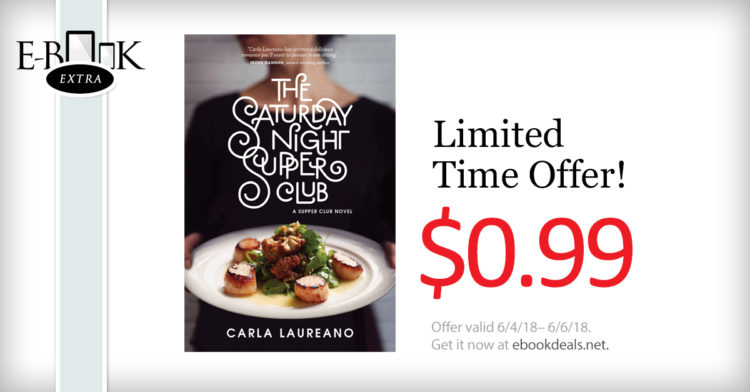Blog
Five Lessons From My First Five Years in Publishing
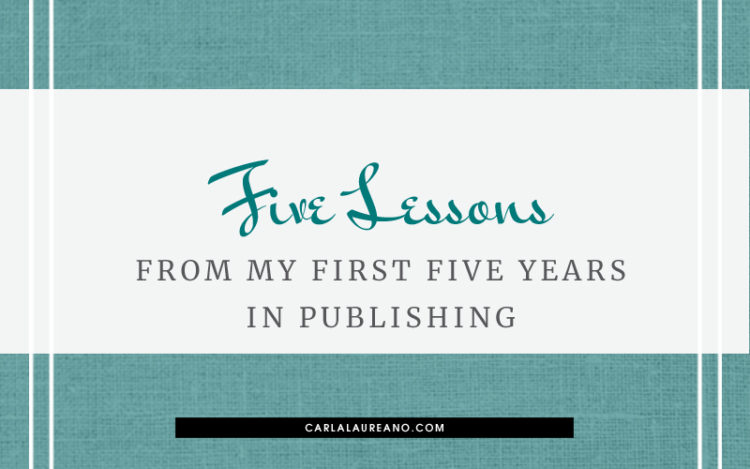
Yesterday, I celebrated the five year anniversary of my first published novel, Five Days in Skye. Part of me wants to say it feels like yesterday; the other part thinks it feels like a lifetime. Even though I went into publishing with my eyes open thanks to established writer friends and experience in corporate America, I can look back and say that I’m not the same person who signed that first contract. And while from the outside it may seem like my entrance into publishing was smooth, in reality, it was anything but. It has, however, taught me not only who I am as a writer, but who I am as a person.
Here are the top five lessons I’ve learned in my first five years.
1. No matter how well you plan, things are going to go wrong.
It will come as no surprise to anyone who has met me that I’m a type-A planner. For my very first marketing call, I showed up with my own marketing plan! I have hustled and networked to get the word out about my books. I’ve now published six books in two different genres in five years, not counting a two year hiatus when switching publishers. My debut won an RWA Rita Award. By all appearances, I’ve been pretty successful in a short period of time.
I’ve also had to change agents. I’ve been dropped by two publishers (both of whom quit their fiction lines). I’ve had different editors and marketing teams for almost every one of my books. I’ve faced some issues that I thought would be career-enders but were barely a blip. I’ve also run into some challenges that no one one anticipated.
The biggest surprise? I’m not in the minority. The more I talk to established writers, the more I realize these sorts of things are the norm, not the exception. The difference between success and failure is simply the ability to move beyond the challenges and keep writing.
2. Just because it’s Christian doesn’t mean it’s Disneyland.
When I attended my first American Christian Fiction Writers conference, I was shocked by one thing: everyone was so nice. How could a bunch of people who were all trying for the same thing—publication—be so friendly and helpful? Where was the competition? The jealousy? The fear of newcomers?
Oh, it’s there, as I found out. It’s almost impossible to put a bunch of passionate, creative people in an industry that’s inherently competitive and not see glimmers of our, shall we say, less generous natures. I’ve heard a few people say they were turned off from publishing when they learned what was going on below the Disneyland facade.
But here’s the thing: this is a community that will rally around its own when the chips are down. Get unfairly smeared on the internet? Hundreds of people will come to your defense. Have a family emergency? You’ll have members of a dozen churches praying for you as soon as you hit publish on your Facebook post. I’ve seen writers organize Go Fund Me campaigns for fellow authors whose houses have burned down, and meal trains and prayer chains for someone with a child in the hospital.
Above all, we’re both Christian and human. We’re not immune to pettiness, even if we don’t want to admit to it, but it doesn’t take much to remind us that we’re all one family in Christ. Like any other family, we take the bad with the good, and five years in, I’m still glad to be a member of the Christian publishing community.
3. Discipline always trumps inspiration.
In 2015, I began to have health problems that affected my ability to continue publishing at my previous pace. The good news was, with the help of a perceptive friend and a smart doctor, I was able to figure out what was going on and treat it. The bad news was, the medication and supplements I had to take killed my creativity. Or rather, it changed how I accessed it. I no longer wrote under fits of inspiration, putting down tens of thousands of words a week. Some days were a slow, hard slog. I feared that everything I was typing would put my readers to sleep.
When I read through my first draft, however, I discovered something shocking: I couldn’t tell the difference between things I had written while wildly inspired and those passages I pulled out word by painful word. Regardless of how I felt about the work, my understanding of how story worked and my ability to craft interesting characters hadn’t changed. The writing might have felt harder, but harder didn’t mean worse.
In the end, inspiration may be what makes the work fun, but it’s discipline and a solid understanding of craft that actually gets the work done.
[bctt tweet=”Inspiration may be what makes the work fun, but it’s discipline and a solid understanding of craft that actually gets the work done. | Five Lessons From My First Five Years in #Publishing”]
4. As a writer, I’m a small business owner.
While most indie authors embrace the idea of being a business, it’s easy in traditional publishing to feel like an employee. In reality, the process is similar: I’m either assembling my own team piece by piece or I’m trusting a publisher to do it for me. (Or in my case, doing both.) Either way, I’m outsourcing many elements of the book production process for the most successful outcome possible.
Still, publishing success can feel out of my control and subject to the whims of the reading public. It helps to focus on those areas that I can influence. I focus on continuing education. I read branding and marketing books, take seminars, learn from others who are more experienced than I am. I experiment with marketing and social media. But more than anything, I think of myself as a business to be invested in. Regardless of the numbers on the royalty report, I know I’m taking the necessary steps to move in the right direction.
5. Writing is what I do, but it’s not everything I am.
This is the corollary to #4. It’s easy to get wrapped up in the work and the marketing and the drive for success. It’s easy to feel like I’m slacking off if I’m not spending my waking hours working. In reality, I need a life outside of writing. Not just for the people who depend on me, but for my own well-being. When my world gets too narrow, it’s easy to inflate minor career annoyances or failures into existential crises. (I’m a writer; I’m nothing if not dramatic.)
While I’ve abandoned the idea of work-life balance on a daily basis, I whole-heartedly embrace the Ecclesiastes view of everything having a season. The times I’m not writing remind me who I am away from the work, the things I love, the things that are important to me. It’s how I know that I can keep my writing career in the proper perspective; as a blessing and not a burden; as a privilege and not a right. If and when the time comes to give it up, I know that I’ll be fine, because I haven’t wrapped up my entire sense of identity in Carla Laureano, Author at the expense of Carla Laureano, Person.
All in all, it’s been a wild five years, and one I’m immensely grateful for. Thanks for coming along on the journey. And here’s to—I hope—many more!
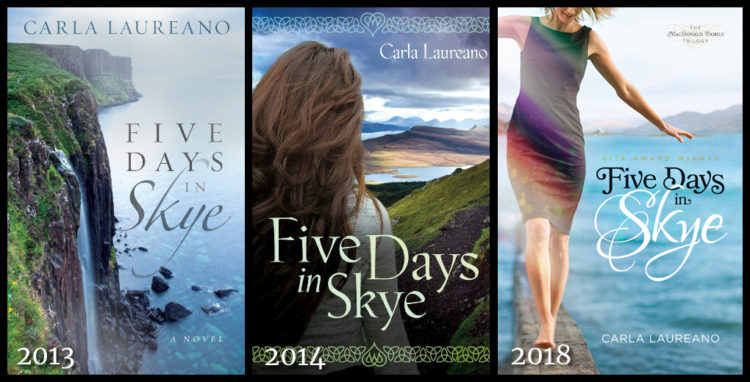
Did any of these lessons surprise you? If you’re a writer, what unexpected lessons have you learned on your journey?
Tags: publishing, work life balance
#2MinBookReview: Matchmaking for Beginners by Maddie Dawson
This week’s book is sure to appeal to lovers of quirky chick lit and women’s fiction. (And if you’re wondering what’s with the crazy hair, well… this is me taking a 15 minute break out of a minor bathroom remodel to record a video. If you look closely, you might be able to see primer in my hair and wall texture on my elbow!)
The Saturday Night Supper Club is only $0.99!
Hey guys, just a quick heads-up… The Saturday Night Supper Club is $0.99 for three days only! If you haven’t already, make sure you grab a copy between June 4th and June 6th. (Of course, if you have the paperback, you probably need the e-book for waiting in line and unexpected delays, right? At this price, you almost can’t go wrong.)
Click on the image above to be taken to the deal page or visit The Saturday Night Supper Club page on this site to choose your retailer. Happy summer reading!

A Writer’s Life: Why I Love My Bad Draft with Elizabeth Byler Younts
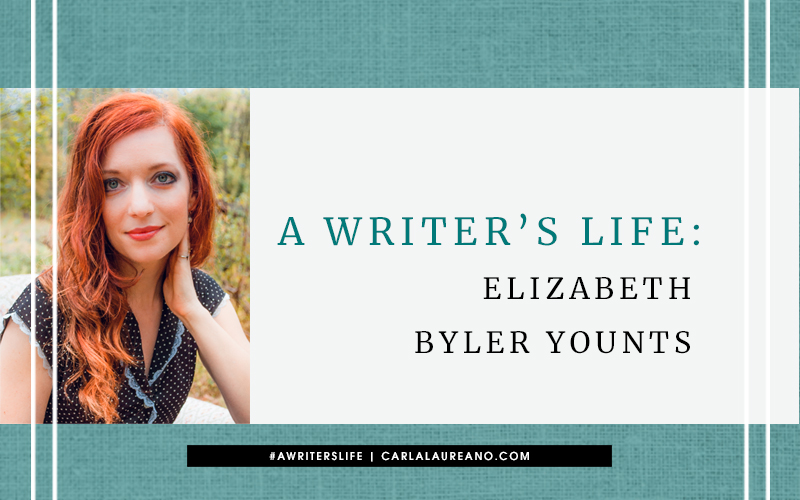
I’m pleased to introduce you to one of my favorite people in the world, author Elizabeth Byler Younts. Elizabeth and I first met when we were both RITA finalists in 2014 and we became fast friends soon after, despite the fact that we write very different things in very different styles. I had the pleasure of reading the proposal form of her upcoming release, The Solace of Water, so I’m not going out on a limb by saying this book is going to blow you away. Make sure you pick up a copy when it releases tomorrow! You won’t be sorry. And in the meantime, make sure you scroll all the way down at the end to enter my giveaway for a copy of the book!
Why I Love My Bad Draft
I get questioned all the time about the publishing world. Questions about the difference between paying a publisher or getting paid by a publisher to write your book. Questions about my process, my schedule, my inspiration behind books…you get my drift.
One of the most common things that come up in “writing” conversations is a deflated comment from someone saying that they always planned to write a book but haven’t and then they give a reason why…or it’s a comment from the most confident person in the room (this is never me) who insists that someday they will write a book, they just haven’t yet.
Okay. To both of those people…I don’t believe you until you write a bad rough draft. And, it will be bad. And that is great!
I’ve heard and read research that says that it takes about 10,000 hours in practicing a skill before you’re really proficient at it or master it. There’s not really a way to accelerate that. You need to put in the time and the effort. I can’t tell you which hour I’m on. I don’t know if I’m getting close or if I’ve exceeded it. While intellectually I realize this matters, right? Practically—I don’t think about it as something I’m concerned over. I’m going to write anyway and I’m going to write to the best of my ability.
I’ve known children when they’re seven narrate amazing stories for their parents to dictate and even have them published. I’ve seen an outstanding drummer who just happened to be three and is a YouTube sensation. Those children have not put 10,000 hours into their skill but have turned out some amazing accomplishments. Does that mean mastery? Maybe not, but I’d say they are well on their way. Have I mastered everything about writing? If I have, then I should stop. I don’t think it’s possible.
So many times we are waiting to do something until we think we’re going to be really good at it or that there will be some magic in the timing or <fill in the blank>. Maybe it’s until we really understand it. Until we have time. Until we have inspiration. Until…until…until. Stop waiting for the until. If you want to write a book, then write it.
In February I was in the process of moving and it was stressful. I also homeschool and help direct my classical co-op. I also had just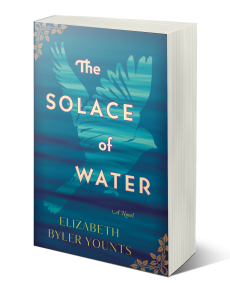 finished my final read through of my upcoming novel The Solace of Water. And I also had another manuscript due on June 1. I will not tell you how little word count I had by then but I will tell you that I’m an exceptionally slow writer and have never written a book in fewer than about 6-9 months. To say that I had a wee-bit of anxiety over this is to say it mildly. The option of an extension was not there and I had a book launch 4 days after my manuscript deadline. Yes, I wanted to find a place to hide.
finished my final read through of my upcoming novel The Solace of Water. And I also had another manuscript due on June 1. I will not tell you how little word count I had by then but I will tell you that I’m an exceptionally slow writer and have never written a book in fewer than about 6-9 months. To say that I had a wee-bit of anxiety over this is to say it mildly. The option of an extension was not there and I had a book launch 4 days after my manuscript deadline. Yes, I wanted to find a place to hide.
While I am certain I can be a far better writer than I am and I hope to improve with every book, what I am learning to master is the art of writing a bad rough draft. YEP! You heard me. A bad rough draft. This might seem like a strange thing to be proud of but for me to have been able to write as much as I did in the course of only 3 ½ months was built on allowing bad writing and be patient with myself that I would edit later…add to that heaps of prayer (not just from me either, I have the most amazing friends and editor)…and I will make my deadline on Friday.
When I finished my bad rough draft the amazing thing was this…NOW I have something to work with. Now I can go back and beautify and add the poetic and literary language that I love and will be doing that for the next 6 months through various edits. Believe me, I’m cringing through some of these scenes, but at least there’s a scene written for me to fix.
Become a master at finishing. Once you master following through and finishing your first draft…and it probably won’t be pretty…that’s when you’re adding hours to your mastery of the craft of writing. Writing the first three or four chapters to seventeen different book ideas you have might get you writing, sure…but what you’re really becoming a master of is quitting. That might sound harsh. But I can guarantee that one of you reading this probably could be a far better writer than me but the difference between me and you is that I’ve mastered the art of finishing.
And you can too.
If you really want to write master the art of finishing then write a bad rough draft. You’ll be so glad you did stuck to it.
Onward,
Elizabeth
If you’d like to learn more about my upcoming release The Solace of Water, please head over to my website or my social media channels. I’d love to chat with you and cheer you on to becoming the published writer you’d like to be.
Website | Facebook | Instagram
If you’re interested in coming to my release party on June 7 at 7:00pm, click here.
Elizabeth Byler Younts writes women’s fiction for Harper Collins/Thomas Nelson. She is a member of the American Christian Fiction Writers. She gained a worldwide audience through her first book Seasons: A Real Story of an Amish Girl and is a RITA nominated writer. She is also the author of The Promise of Sunrise series. She has consulted on Amish lifestyle and the Pennsylvania Dutch dialect for two award-winning television shows. Elizabeth lives in Central Pennsylvania with her husband, two daughters, and a cockapoo named Fable.

